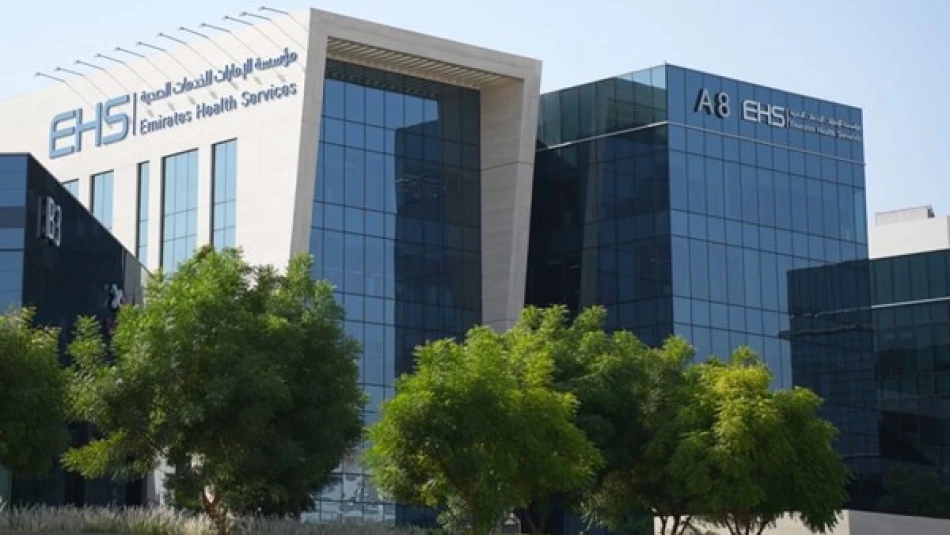
Exploring the Ethical Implications of AI in Healthcare at the AI Summit
UAE Positions Itself as Global AI Healthcare Hub with Major September Summit
The UAE is making a bold push to cement its position as a world leader in AI-powered healthcare, with the Emirates Health Services announcing its flagship AI Summit on September 9-10. This strategic move reflects the nation's ambitious plan to transform its healthcare sector through artificial intelligence while establishing Dubai as a regional hub for digital health innovation.
Strategic Timing Amid Global AI Healthcare Race
The EHS AI Summit, themed "Accelerating the Adoption of AI Technologies in Healthcare," will be held at the Dubai World Trade Centre as part of the inaugural WHX TECH 2025 Digital Healthcare Exhibition. This timing is particularly significant as healthcare systems worldwide grapple with post-pandemic challenges and seek technological solutions to improve efficiency and patient outcomes.
The summit's focus on responsible AI and healthcare ethics positions the UAE ahead of regulatory curves that other nations are still navigating. While the European Union debates AI governance frameworks and the United States wrestles with healthcare data privacy concerns, the UAE is proactively addressing these challenges through structured dialogue.
Beyond Conferences: A Blueprint for Regional Leadership
Key Focus Areas Signal Serious Intent
The summit's agenda reveals sophisticated understanding of AI healthcare implementation challenges. Sessions will cover AI ethics in healthcare, predictive analytics in public health, and sustainable healthcare systems—topics that reflect real-world deployment concerns rather than theoretical discussions.
This approach mirrors successful strategies seen in Singapore's HealthTech ecosystem and Israel's medical AI sector, where government-backed initiatives created thriving innovation environments. The UAE appears to be following a similar playbook, leveraging state resources to accelerate private sector innovation.
Market Implications for Healthcare Investors
For healthcare technology investors and multinational corporations, the UAE's systematic approach presents significant opportunities. The country's National AI Strategy 2031 provides a clear regulatory roadmap—something often lacking in other emerging markets.
The Emirates Health Services' position as the nation's primary healthcare provider gives this initiative substantial weight. Unlike private sector conferences, this summit carries government backing that could translate into concrete policy changes and procurement opportunities.
Regional Competition Heats Up
The UAE's aggressive timeline puts pressure on regional competitors. Saudi Arabia's NEOM project and Qatar's National Vision 2030 both emphasize healthcare innovation, but the UAE's focus on AI governance and ethics could provide a competitive advantage in attracting international partnerships.
The summit's emphasis on bringing together "global leaders, academics, and innovators" alongside local AI executives suggests the UAE is building an ecosystem rather than just implementing technology. This holistic approach has proven successful in other sectors like fintech, where Dubai emerged as a regional leader.
What This Means for Healthcare's Future
The UAE's approach signals a shift from technology adoption to technology leadership in the Middle East healthcare sector. By addressing AI governance upfront, the country is positioning itself to avoid the regulatory backlash that has slowed AI implementation in other regions.
For healthcare providers globally, the UAE's experience could offer valuable lessons in responsible AI deployment. The country's relatively small, tech-savvy population provides an ideal testing ground for innovations that could later scale regionally and globally.
The success of this summit and the broader WHX TECH 2025 exhibition will likely influence how other Gulf states approach healthcare digitization, potentially accelerating AI adoption across the region's healthcare systems.
Most Viewed News

 Layla Al Mansoori
Layla Al Mansoori






